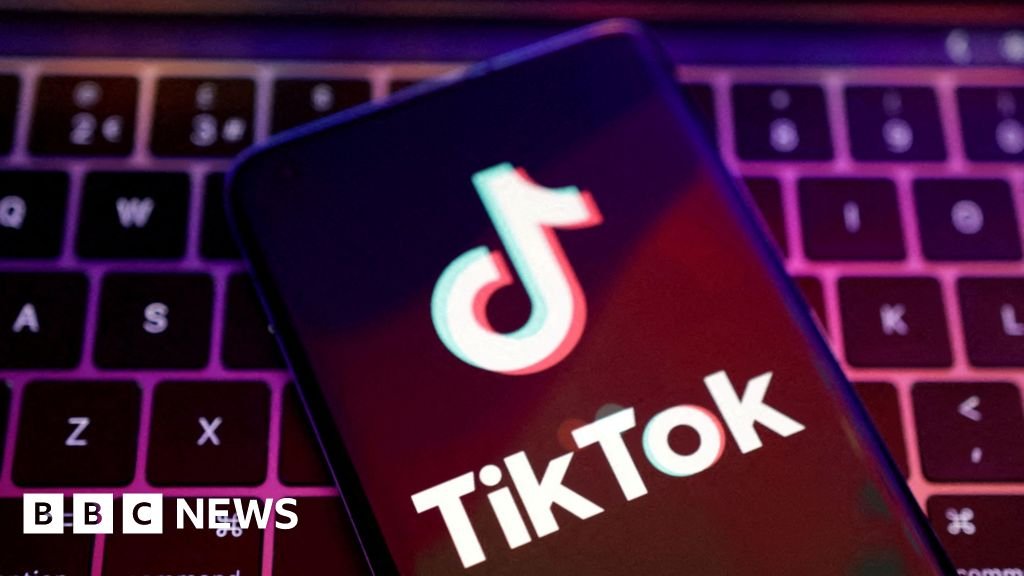TikTok is being sued by seven families in France, who accuse the social media giant of exposing their children to harmful content – leading two to take their own lives.
The case alleges the video platform’s algorithm exposed them to content promoting self-harm, eating disorders and suicide, said Laure Boutron-Marmion, a lawyer for the families.
She told French media that the lawsuit was the first of its kind in Europe.
TikTok, which is one of the world’s most popular social media platforms, said it had not received any notifications of legal proceedings relating to the claims.
The company added in a statement that its community guidelines do not allow for the showing, promoting or sharing plans for suicide or self-harm, and that it uses a combination of technology and moderation to ensure these standards are upheld.
The group lawsuit, which has been filed in the Créteil judicial court, is separate to a criminal complaint filed against TikTok last year by the parents of Marie – one of the two teenagers who killed herself.
Marie, whose surname has not been used in reporting, was 15 when she took her own life in 2021. Her death, according to her mother, was due in part to the video content that she was able to access on TikTok without moderation.
Another girl whose family is involved in the lawsuit also died by suicide, while four of the other five young women attempted to take their own lives. At least one of them had developed an eating disorder.
- If you are experiencing any of the issues mentioned in this story you can visit BBC Action Line for a list of websites and helplines that can offer direct help at any time.
“The parents want TikTok’s legal liability to be recognised in court”, Ms Boutron-Marmion told broadcaster Franceinfo.
“This is a commercial company offering a product to consumers who are, in addition, minors. They must, therefore, answer for the product’s shortcomings.”
TikTok, like other major social networks, has faced scrutiny and criticism over its safeguarding practices.
More than a dozen US states recently sued the company – accusing it of helping to drive a mental health crisis among teenagers.
Last year, the European Union opened an investigation into whether it had breached new safety laws relating to the protection of minors, among other areas.
In an interview in April, Ms Boutron-Marmion told French legal news site Actu-Juridique that cases such as that of Molly Russell, the British schoolgirl who killed herself in 2017 after seeing graphic images of self-harm and suicide online on Instagram and Pinterest, were increasing awareness of the need for greater accountability when it comes to social media content.
“Parents are starting to wake up. Many of them were unaware of the horrors that were circulating on the platforms. While I have noticed a change in mentalities, the problem remains: addiction persists, including among adults.”














Leave a Reply